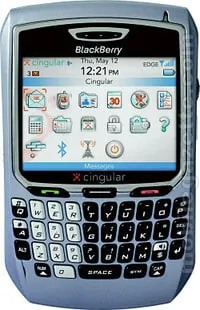2015 may be the first year in quite some time that positive headlines are associated with the once behemoth mobile handset maker known as BlackBerry (formerly, the once great, lovable RIM).
Today new CEO John Chen focused heavily on one key thing during the company’s quarterly call.
I just want to say one word to you. Just one word.
Are you listening?
Software.
(and if that fails, plastics).
Enterprise customers, long a stranglehold for BlackBerry, accounted for 2,600 wins during the quarter. About 40% of those were new. That’s a nice vote of confidence by big business. It also demonstrates that core strengths such as scalability, security and performance are still valued, and associated with the BlackBerry brand.
Regarding the handset business, I hope BB drops it completely. Focusing purely on software is strategically smart. Hardware is a low margin game. The competition is fierce, and it’s virtually impossible to make inroads — in the consumer space — against Apple (iOS) and Google (Android). Microsoft, even with its Nokia acquisition (once the largest mobile player), has to date failed to make much of a showing.
Sadly, former BB management tried for years to get into the consumer space.
I’m not sure why.
Ego?
Sexiness?
A misread of the market?
I’m guessing, though, most of us had our first experience with a RIM or BlackBerry phone at the office. Mine was the epic 8700c. It had a small color screen with an honest-to-goodness chiclet QWERTY keyboard below. It ran on the network formerly known as Cingular. And it synced corporate email in real-time. Magic. This was 2006.
While RIM continued to focus on security, performance and other enterprise-worthy must haves, Apple blind-sided it, and the entire industry, with the iPhone. The iPhone really wasn’t a phone. Or an MP3 player. Or a web browser. Though it was all of those things, it really was a Billion dollar App cash engine. The app economy was born. BlackBerry missed it completely. It also missed the touch interface revolution. Though it would later introduce the Storm (remember that?) that model was so buggy and clearly designed with yesteryear’s thinking that it was doomed. People flocked to Apple, and, with the advent of Google’s new mobile OS, to lower priced Android phones that were open, offering more choice.

Thornsten Heins was perhaps not my favorite. The CEO presided over RIM as it began its epic collapse. He was prone to maniacal non-sequiturs such as mentioning his exotic Mercedes gull-wing sports car, and hiring people like Alicia Keys. People who would say, “I love BlackBerry” on stage, only to pull their iPhone out later and Tweet even more love for handsets that sadly no one wanted anymore. To his credit, consolidating under the “BlackBerry” brand (which has far more recognition than RIM) was a savvy marketing decision.
And John Chen?
This feels like the right guy at the right time.
Not only does BlackBerry need him. Canada does too.
The astonishing failure of Nortel (where I began my tech career up in Ottawa, inside the labs of Bell Northern Research) was hard enough to digest, wiping out massive amounts of retirement savings. But, now, BlackBerry too?
Fortunately, it looks like this story will have a happy ending.
Chen noted he would shift $100 to $200 million worth of spending from hardware into software. Good call.
BlackBerry Enterprise Server (BES) has been and probably always will be the cornerstone of the company. Strategically, BlackBerry has far more credibility and expertise in this space than either Google or Apple. Yes, BYOD (bring your own device) upended the traditional model. But, enterprise customers still need to integrate mobile devices with their platforms, and various company services (be they private or externally cloud hosted).
Hardware is not going away right away, mind you. BlackBerry shipped 1 million handsets, and brought in 40% of the quarter’s revenue. But he y/y trend and Chen’s words on today’s call suggest a major shift towards software.
I’d like to see BlackBerry instead license its OS. I’m not sure how easy it would be to sign on partner companies to make handsets, but trimming the company’s fat, and focusing on high margin plays such as BES is surely a respectable first step.
Everyone loves a comeback. BlackBerry has legions of fans. And this story looks to be headed to brighter pastures, even if BlackBerry phones aren’t seducing the masses like they once did.


